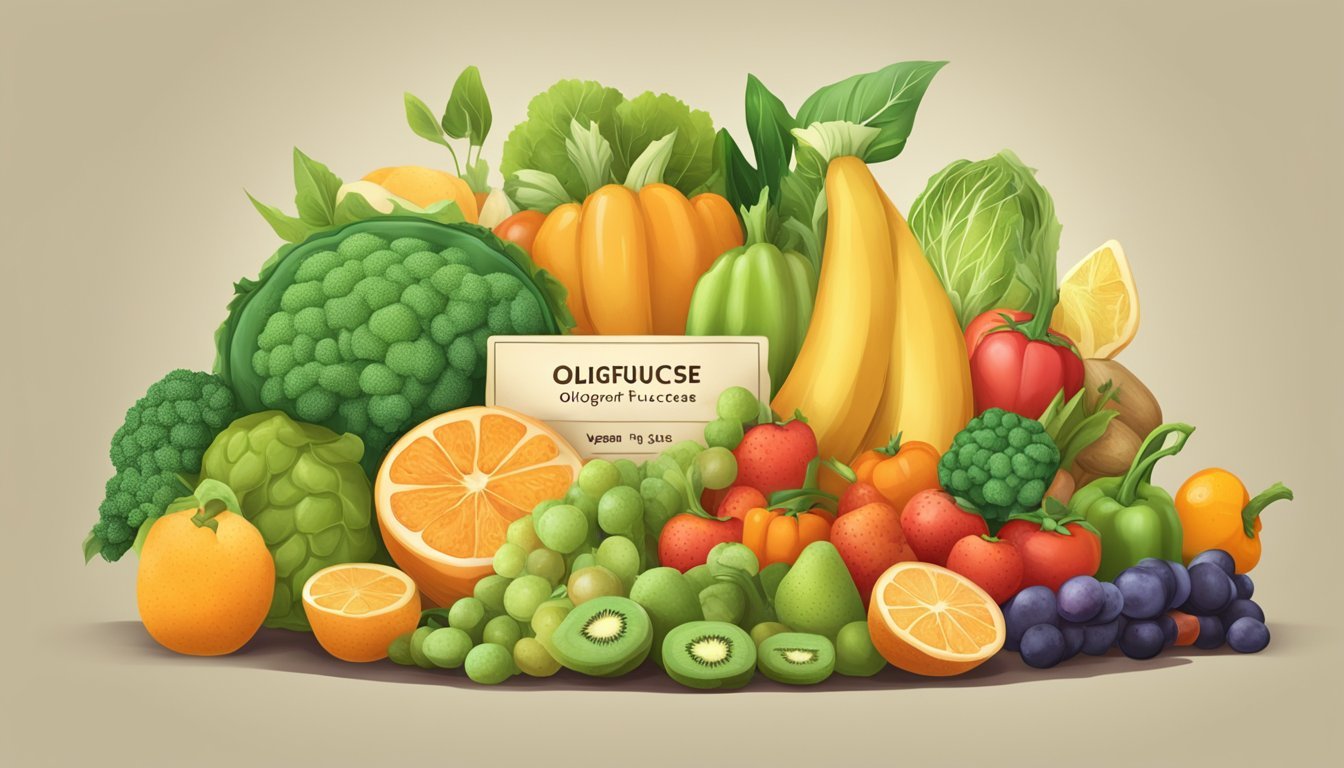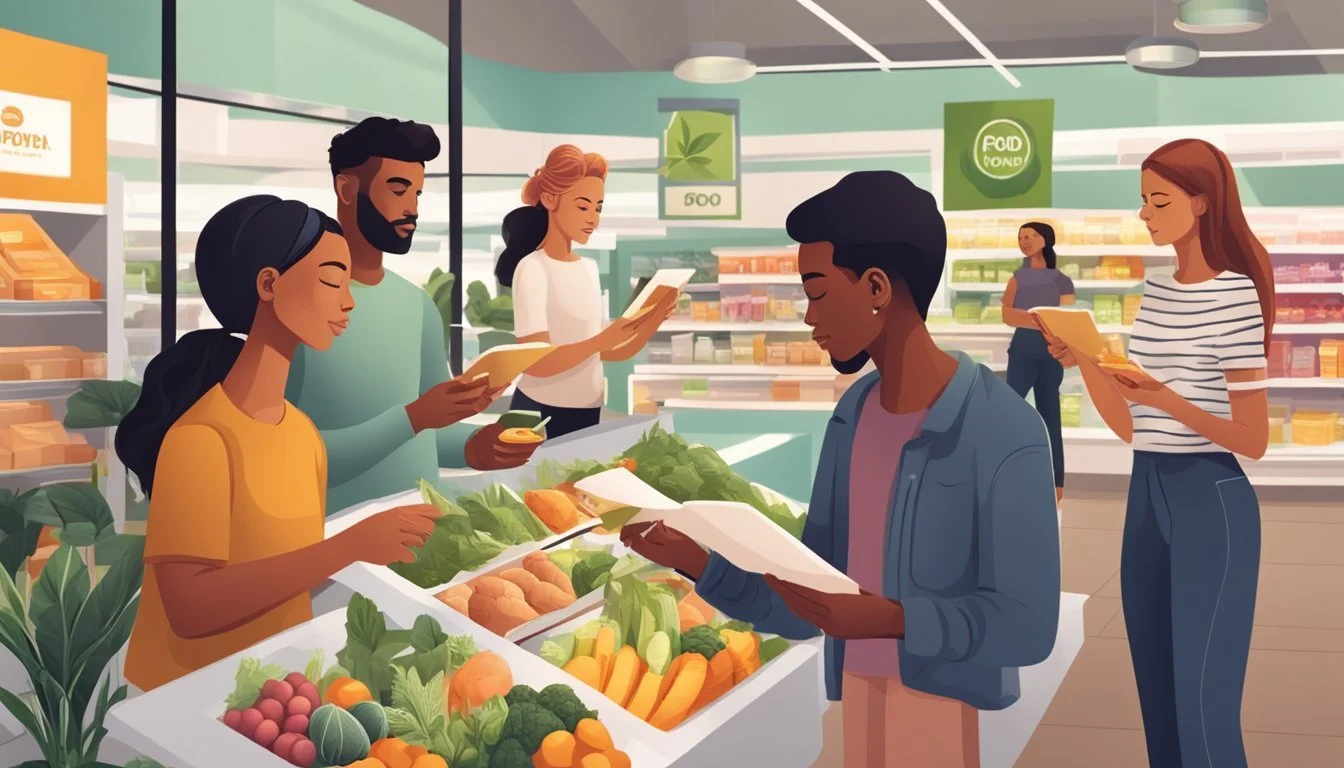Is Oligofructose Vegan?
Unveiling the Truth About This Sweet Fiber
Oligofructose, a subset of inulin, is a type of soluble dietary fiber derived from various plants. Common sources include chicory root, Jerusalem artichokes, onions, garlic, and asparagus. In its commercial form, it's often extracted from chicory root and is used as a sweetener, fiber supplement, and prebiotic. Prebiotics are non-digestible food components that promote the growth of beneficial microorganisms in the intestines. Due to oligofructose's plant-based origin and natural extraction process, it is generally considered appropriate for a vegan diet.
Understanding the vegan suitability of food additives such as oligofructose is important to those following a vegan lifestyle, as it is critical that all aspects of a product align with vegan principles—absence of animal exploitation and harm. As a prebiotic fiber, oligofructose can be found in a broad array of products, ranging from food items to supplements, and serves not only as a sweetener but also as a nutrient fostering a healthy gut microbiome. The inclination towards vegan-friendly ingredients has made oligofructose a popular choice in the formulation of non-dairy and vegan food products that aim to mirror the beneficial properties of their conventional counterparts.
What Is Oligofructose?
Oligofructose, a subset of fructooligosaccharides, is a type of carbohydrate recognized for its prebiotic effects and dietary fiber properties. Its relevance in the diet stems from its ability to offer health benefits while serving as a low-calorie sweetener.
Chemical Composition
Oligofructose consists chiefly of fructose units. Structurally, it is a short chain of fructose molecules, typically containing between 2 to 7 units. As a soluble fiber, it is not digested by human enzymes but rather fermented by gut bacteria.
Sources of Oligofructose
This carbohydrate is naturally found in several plants. Key sources include chicory root, Jerusalem artichoke, onions, asparagus, garlic, and bananas. Due to its benefits, it is also synthesized from sucrose or extracted to be used as a supplement.
Comparison with Other Sugars
In contrast to typical sugars like glucose, fructose, and sucrose, oligofructose has a lower caloric value. It's categorized as a sweetener and a supplement that acts as a dietary fiber, offering a sweetness without significantly impacting blood sugar levels.
Oligofructose in the Diet
Oligofructose is commonly added to cereals, fruit preparations for yogurt, frozen desserts, and baked goods. Its dual role as a prebiotic and sweetener makes it a premium choice for individuals seeking health benefits from their dietary choices, including those following vegetarian or vegan diets.
Oligofructose and Veganism
In the context of veganism, it is crucial to understand the origins and processing of food additives like oligofructose to ensure they align with vegan standards of avoiding animal exploitation.
Defining Vegan Products
A product is considered vegan if it is free from any animal-derived ingredients and has not been subjected to animal testing. Veganism is a lifestyle choice that seeks to eliminate all forms of animal exploitation and cruelty, be it for food, clothing, or any other purpose. This extends to the use of vegan foods, which must also adhere to strict regulations on labeling to provide consumers with transparent information.
Oligofructose Processing and Vegan Considerations
Oligofructose, also known as fructooligosaccharide, is a type of prebiotic derived primarily from plant sources like chicory root. The vegan status of oligofructose depends on the processing methods. If the manufacturing process of this fiber involves any animal products or testing, it would not be considered vegan. It is essential for vegan consumers to verify the processing methods from the manufacturer to ensure the product aligns with veganism.
Common Vegan-Friendly Prebiotics
Prebiotics like oligofructose are often added to vegan alternatives to enhance nutritional value. Some common vegan-friendly prebiotics include:
Inulin: Naturally found in asparagus, leeks, and onions.
Galactooligosaccharides (GOS): Typically sourced from legumes.
These prebiotics are frequently incorporated into vegan alternatives to yogurt and vegan alternatives to cheese, offering health benefits without compromising on animal rights and animal empathy.
Health Implications of Oligofructose
Oligofructose, a soluble fiber with notable prebiotic properties, contributes positively to gut health, aids in digestion, and plays a role in preventing certain diseases. These benefits are a result of its fermentation in the gut, leading to the production of short-chain fatty acids and changes in the microflora.
Gut Health and Microbiota
Oligofructose is not digested in the upper gastrointestinal tract, which allows it to reach the colon intact. Here, oligofructose is fermented by the gut microflora, leading to the production of short-chain fatty acids (SCFAs). SCFAs are crucial for maintaining gut health, as they serve as an energy source for colon cells and help maintain the integrity of the gut barrier. The fermentation of oligofructose also supports the growth of beneficial microorganisms, enhancing immune function and providing better resistance to pathogens.
Benefits for Digestive Health
Regular consumption of oligofructose can offer several digestive benefits. It helps improve stool frequency and consistency, which can alleviate constipation. Additionally, oligofructose enhances calcium absorption, instrumental to maintaining strong bones. While it promotes digestive health, some individuals may experience bloating; this typically diminishes with continued consumption as the body adjusts.
Role in Disease Prevention
Oligofructose's impact on satiety hormones contributes to weight management and may reduce the risk of obesity. By increasing the feeling of fullness and reducing appetite, it can play a role in weight management strategies. Furthermore, oligofructose's role in promoting a healthy gut microbiota and its fermentation into SCFAs are linked to reduced risk of diabetes and better overall health. It has been suggested that a well-balanced gut microbiome, supported by prebiotic fibers like oligofructose, is crucial for long-term health and disease prevention.
Regulatory Standards and Safety
When considering the vegan status of an ingredient such as oligofructose, it is crucial to examine the established regulatory frameworks and safety standards. These regulations provide assurances that products adhere to vegan principles and are safe for consumption.
GRAS Status and FDA Regulations
Oligofructose is a carbohydrate derived from plant sources and is considered by the FDA as "Generally Recognized as Safe" (GRAS). GRAS substances are believed to be safe when used as intended based on their history or on the results of scientific research.
Source: The FDA compiles a GRAS list which includes oligofructose, classifying it as safe to consume.
Vegan Standards: In FDA regulations, the vegan status of ingredients is not explicitly covered, but GRAS status implies suitability for human consumption without addressing origin.
Global Vegan Certifications
The vegan status of food products and their ingredients, like oligofructose, is often certified through globally-recognized vegan logos and guidelines established by various organizations.
Logos and Certifications: The authenticity of vegan claims is often validated through certification and the use of vegan logos.
Example: Safe Food Advocacy Europe supports the standardization of vegan claims for clarity to consumers.
European Standards: The European vegan and vegetarian movement, along with the European food and drink industry, may utilize vegan certification to ensure plant-based alternatives meet strict criteria.
Food Standards Agency of the UK: Involved in the oversight of food labeling, ensuring accountability and that products, such as those containing oligofructose, represent their vegan status accurately.
These regulations and certifications are in place to ensure that consumers who follow a vegan diet can trust that products labeled as vegan, including oligofructose, are consistent with veganism and free from animal-based contaminants, which is particularly significant for those seeking to avoid dairy products and their derivatives.
Incorporating Oligofructose into Vegan Diet
Oligofructose, a dietary fiber with prebiotic properties, can be seamlessly integrated into a vegan diet through natural food sources and specialized products. This inclusion benefits digestive health and can contribute significantly to meeting daily fiber needs.
Vegan Food Sources Containing Oligofructose
Fruits and Vegetables:
Bananas: Rich in oligofructose, a convenient snack.
Chicory Root: The root of chicory is an excellent source with 64.6% fiber content, often used in a powdered form.
Garlic and Onions: These kitchen staples contain a modest amount of oligofructose.
Leeks and Asparagus: Both are good vegetable options, providing a natural boost to the vegan diet.
Oligofructose Enriched Products
Supplements and Powders:
Vegan supplements designed specifically with prebiotic fibers like oligofructose.
Bakery and Snacks:
Certain breads and spreads may be fortified with oligofructose to enhance fiber content, always check labeling to confirm vegan compliance.
Regulations for Labeling and Processing:
It's important for consumers to look for certifications and regulation adherence on packaging to ensure products are truly vegan.
Potential Vegan Alternatives
Yogurt and Cheese Alternatives:
Vegan yogurt alternatives often use almond or coconut bases.
Vegan cheese alternatives are made from nuts or plant oils and can be fortified with oligofructose for additional health benefits.
Looking for the "vegan" label and verifying ingredients is crucial when selecting vegan products, as processing and additives can affect their vegan status.
Technological and Nutritional Aspects
This section addresses the integration of oligofructose in the food industry, its technological applications, and the substance's beneficial nutritional properties that support human health.
Technological Applications in Food Industry
Oligofructose, a type of soluble polysaccharide, finds numerous applications in the food industry primarily due to its subtle sweetness. It serves as a sugar substitute that can be incorporated into fortified foods to enhance their fiber content without significantly altering the flavor profile. The characteristic feature of oligofructose being a prebiotic means that it contributes to the technological and sensory properties of various products, including dairy alternatives, baked goods, and confections.
Uses include:
Fat or sugar replacement to lower calorie content
Enhancing the mouthfeel and texture of plant-based and vegan products
Supporting the growth of probiotic bacteria in fermented food items
Functional Benefits and Nutritional Properties
Oligofructose boasts multiple nutritional properties that positively affect human gut health. As a prebiotic, it undergoes fermentation by the gut microbiota, which can lead to benefits such as improved regularity and enhanced immune function. Moreover, it contributes to a feeling of satiety, helping with weight management by potentially reducing caloric intake.
Key nutritional highlights include:
Low caloric value compared to traditional carbohydrates
Ability to support beneficial gut bacteria growth
Contribution to overall digestive health and immune response
In summary, oligofructose stands out for its multifaceted role in the food industry and its significant nutritional benefits that align with current health-focused food trends.
Consumer Awareness and Trends
Recent years have witnessed a marked increase in consumer awareness about the benefits and ethical considerations of veganism, prompting an upswing in the market for vegan products, including prebiotics like oligofructose. This section delves into the specific trends observed in vegan prebiotic products and the innovative supplements that have been capturing the interest of health-conscious consumers.
Trending Vegan Prebiotic Products
The vegan prebiotics market has seen innovative growth in the form of functional juice blends, isotonic beverages, and wholefood bars incorporating oligofructose. These products cater to the rising demand for plant-based dietary fiber and prebiotics known to support gut health. Notably, fruit clusters and chocolate snacks, enhanced with oligofructose or other fructooligosaccharides, have become popular among those looking for healthy, vegan snack options. They offer a convenient way to include prebiotics in the diet without compromising on taste.
Innovative Prebiotic Supplements
Supplement producers have been responding to consumer trends with vegan prebiotic supplements that encompass a variety of sources such as chicory root inulin-type fructans, acacia gum, and polydextrose. These supplements are designed to provide the dietary fiber essential for digestive health and are marketed for their purity and adherence to vegan standards. Their innovation lies not just in their vegan formulation but also in their delivery methods, ranging from capsules and powders to enhanced drink mixes, making dietary supplementation more accessible and palatable for a growing vegan market.







